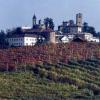-
Welcome to the eG Forums, a service of the eGullet Society for Culinary Arts & Letters. The Society is a 501(c)3 not-for-profit organization dedicated to the advancement of the culinary arts. These advertising-free forums are provided free of charge through donations from Society members. Anyone may read the forums, but to post you must create a free account.
-
Similar Content
-
- 399 replies
- 80,998 views
-
- 14 replies
- 962 views
-
- 3,904 replies
- 688,462 views
-
- 423 replies
- 102,949 views
-
Italy v China
By liuzhou,
- 12 replies
- 3,250 views
-
-
Recently Browsing 0 members
- No registered users viewing this page.





Recommended Posts